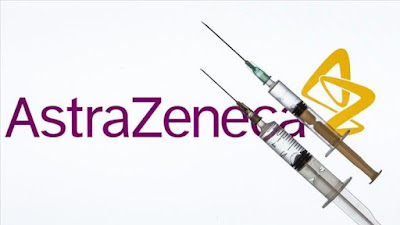Filenews 16 March 2021
The immunisation campaign for Covid-19 in the European Union took another blow today, with pharmaceutical company AstraZeneca announcing it would reduce its deliveries at a time when five European leaders, concerned about the uneven distribution of doses, are calling for talks.
Denmark, Iceland, Norway and Bulgaria decided this week to temporarily suspend vaccinations with the AstraZeneca formulation, following the reported cases of severe thrombosis, while Thailand postponed the start of its own campaign.
But the World Health Organization assured on Friday that "there is no reason why this vaccine should not be used."
"AstraZeneca is in the uncomfortable position of announcing the reduction in vaccine deliveries for Covid-19 to the European Union," the British-Swiss group said. This vaccine was approved for use in the EU at the end of January.
Citing "export restrictions" for vaccines manufactured outside the EU, the company announced that it would only be able to deliver 100 million doses in the first half of the year, i.e. by the end of June. This means that in the second quarter it will deliver only 70 million doses instead of the 180 originally planned.
In January, the company had already lowered its target, referring to an "efficiency" problem at its factory in Belgium.
As a result of this decline in deliveries, Thuringia will temporarily postpone the implementation of a pilot project under which GOs would start vaccinating the population by the end of March. This project mainly concerned the elderly living in their homes and not in nursing homes. The state's Health Minister, Hyke Werner, described the reduction in deliveries as "absolutely unacceptable."
France, which yesterday surpassed the 90,000 deaths from The Covid-19, hopes to meet its target of vaccinating 10 million people by mid-April. But "we have to be cautious, because our laboratories are suffering somewhat" in terms of keeping the delivery schedules for the preparations, Prime Minister Jean Castex said today.
At the same time, the leaders of five countries (Austria, the Czech Republic, Slovenia, Bulgaria and Latvia) today called for a debate to be launched as soon as possible, in the EU's leading bodies, on "enormous disparities" in dose allocation.
Austrian Chancellor Sebastian Kurtz yesterday accused some member countries, without naming them, of negotiating behind-the-scenes "contracts" with pharmaceutical companies.
Source: CYPE - RES
